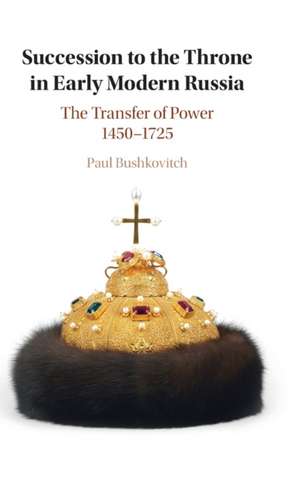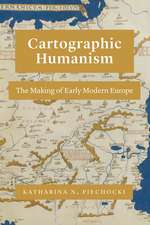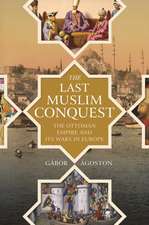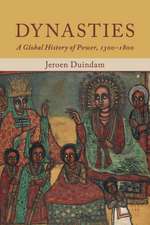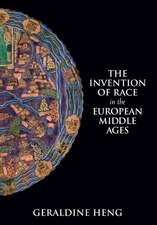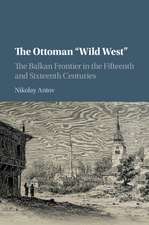Succession to the Throne in Early Modern Russia: The Transfer of Power 1450–1725
Autor Paul Bushkovitchen Limba Engleză Hardback – 17 mar 2021
| Toate formatele și edițiile | Preț | Express |
|---|---|---|
| Paperback (1) | 201.66 lei 3-5 săpt. | +21.10 lei 7-13 zile |
| Cambridge University Press – 30 mai 2024 | 201.66 lei 3-5 săpt. | +21.10 lei 7-13 zile |
| Hardback (1) | 893.85 lei 6-8 săpt. | |
| Cambridge University Press – 17 mar 2021 | 893.85 lei 6-8 săpt. |
Preț: 893.85 lei
Preț vechi: 1039.36 lei
-14% Nou
Puncte Express: 1341
Preț estimativ în valută:
171.03€ • 179.06$ • 141.52£
171.03€ • 179.06$ • 141.52£
Carte tipărită la comandă
Livrare economică 05-19 aprilie
Preluare comenzi: 021 569.72.76
Specificații
ISBN-13: 9781108479349
ISBN-10: 1108479340
Pagini: 400
Dimensiuni: 150 x 230 x 28 mm
Greutate: 0.72 kg
Editura: Cambridge University Press
Colecția Cambridge University Press
Locul publicării:Cambridge, United Kingdom
ISBN-10: 1108479340
Pagini: 400
Dimensiuni: 150 x 230 x 28 mm
Greutate: 0.72 kg
Editura: Cambridge University Press
Colecția Cambridge University Press
Locul publicării:Cambridge, United Kingdom
Cuprins
Preface; Acknowledgements; 1. Introduction; 2. Designation and heredity 1450–1533; 3. Benediction to election 1533–1598; 4. Election and heredity 1598–1645; 5. Succession and the new culture of the court 1645–1689; 6. Peter the Great and succession 1690–1719; 7. Peter's heirs and Feofan Prokopovich 1719–1725; Conclusion; Bibliography.
Recenzii
'In this comprehensive study of succession in early modern Russia, Bushkovitch challenges the traditional theory that the Russian monarchy operated on the principle of hereditary primogeniture. Rather, Bushkovitch offers an insightful view of succession as an evolving practice that contributed to the stability of the Russian state.' Sergei Bogatyrev, University College London
'Bushkovitch topples unexamined assumptions about normal patterns of succession in Russia from the fifteenth century through the eighteenth century. Bushkovitch's linguistic range and expansive source base open surprising and altogether new perspectives. He contributes to the recent rediscovery of diplomatic sources and uses them to build a new picture of early modern Russia.' Valerie Kivelson, University of Michigan
'Meticulously researched and wonderfully written, this book shines the spotlight on succession to the Russian throne, a vitally important theme in the early modern period. Bushkovitch goes beyond surveying the transfer of power to penetrate the very nature of monarchy in Russia, from its Muscovite roots to the death of Peter the Great, challenging us to reconsider long-held notions about custom, law, ritual, and dynasty.' Russell E. Martin, Westminster College (New Wilmington, Penna)
'A work of substantial scholarship. Bushkovitch explores and refines previous historians' assumptions about succession to the throne in early modern Russia, expertly setting the practices and concepts of the system in the context of court politics and court culture, and drawing instructive comparisons with other European monarchies.' Maureen Perrie, University of Birmingham
'The book is essential reading for both scholars of the early modern Russian state and general readers interested in learning more about the lives, families, and reigns of Russia's rulers from the Grand Princes of Moscow to Emperor Peter the Great.' Carolyn Harris, H-Net Reviews
'Historians of the Russian Empire will appreciate this work's archival dedication, which will last as a model for studying the Russian state for decades to come. Highly recommended.' A. M. Mayer, Choice
'… this work is a worthwhile contribution to the debates about the nature of absolutism and succession in Russia. The research is based on a very solid base of primary sources and secondary literature. The book is highly recommended for professional historians and graduate students.' Anastasiia S. Lystsova, European History Quarterly
'Bushkovitch topples unexamined assumptions about normal patterns of succession in Russia from the fifteenth century through the eighteenth century. Bushkovitch's linguistic range and expansive source base open surprising and altogether new perspectives. He contributes to the recent rediscovery of diplomatic sources and uses them to build a new picture of early modern Russia.' Valerie Kivelson, University of Michigan
'Meticulously researched and wonderfully written, this book shines the spotlight on succession to the Russian throne, a vitally important theme in the early modern period. Bushkovitch goes beyond surveying the transfer of power to penetrate the very nature of monarchy in Russia, from its Muscovite roots to the death of Peter the Great, challenging us to reconsider long-held notions about custom, law, ritual, and dynasty.' Russell E. Martin, Westminster College (New Wilmington, Penna)
'A work of substantial scholarship. Bushkovitch explores and refines previous historians' assumptions about succession to the throne in early modern Russia, expertly setting the practices and concepts of the system in the context of court politics and court culture, and drawing instructive comparisons with other European monarchies.' Maureen Perrie, University of Birmingham
'The book is essential reading for both scholars of the early modern Russian state and general readers interested in learning more about the lives, families, and reigns of Russia's rulers from the Grand Princes of Moscow to Emperor Peter the Great.' Carolyn Harris, H-Net Reviews
'Historians of the Russian Empire will appreciate this work's archival dedication, which will last as a model for studying the Russian state for decades to come. Highly recommended.' A. M. Mayer, Choice
'… this work is a worthwhile contribution to the debates about the nature of absolutism and succession in Russia. The research is based on a very solid base of primary sources and secondary literature. The book is highly recommended for professional historians and graduate students.' Anastasiia S. Lystsova, European History Quarterly
Notă biografică
Descriere
This revisionist history explores how the tsar's power was transferred in Russia over three centuries, as cultural practices and customs evolved.
